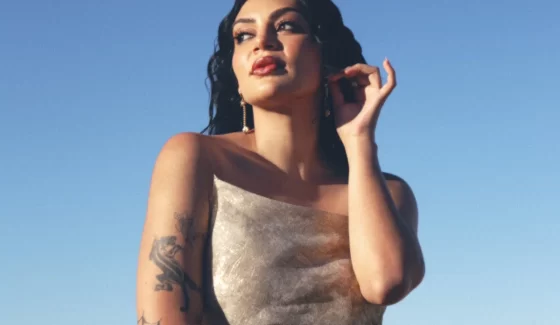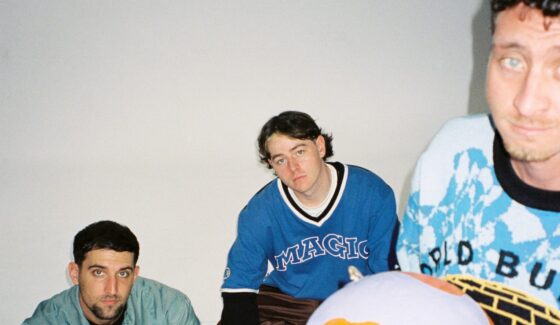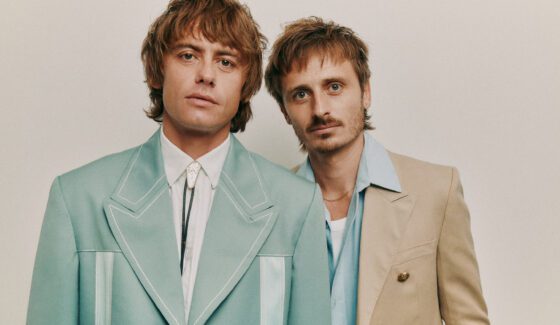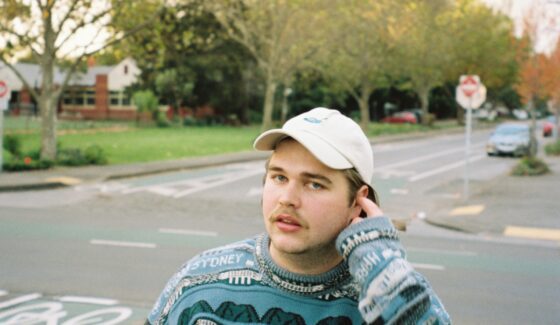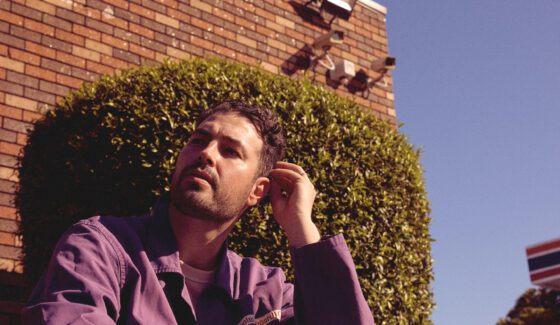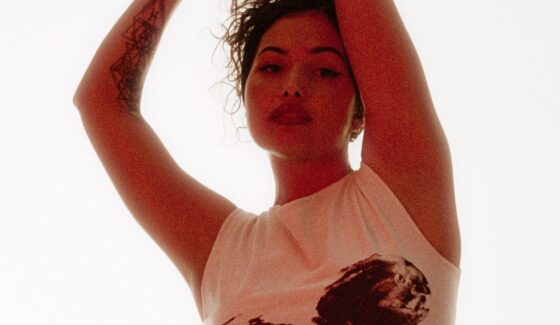Interview: Filmaker Yana Amur from ‘Breaking The Sound Barrier’
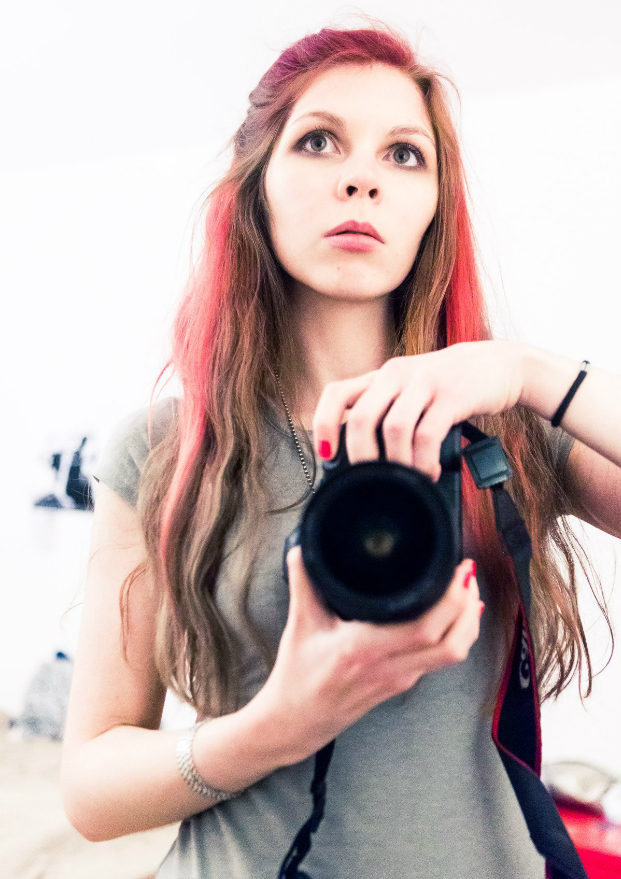
Melbourne filmmaker Yana Amur’s back-catalogue sports plenty of teasers and interviews with local Melbourne acts. However it’s her latest upload that has Australia buzzing. Her mini-documentary Breaking The Sound Barrier is a candid look inside the soul of Melbourne music, showcasing the bare hearts of the musicians that put all their sweat, tears, and most importantly bank accounts into creating and distributing the art we love.
How did the idea for the documentary come about? Was there a particular spark for the idea?
I was pressed to come up with a graduation project for my Bachelor’s degree at RMIT University where I was studying photography for 3 years. Considering my background it was likely to be a series of photoshoots with different bands. But then I thought making a video would be more interactive and fun rather than just putting people in front of white walls. Besides, around that time I started wondering about today’s role of rock’n’roll in general, and I got curious to speak about it with actual musicians to find out how they feel about that.
What did you hope to achieve with it?
I was hoping to get an insight into bands’ honest motivation to stay in the music business. We all kinda suspect it’s not an easy task to stay optimistic and keep going despite being underpaid or unnoticed. So I wanted to hear why they actually do this and how do they keep their faith, since I have similar doubts and obstacles in my own field as well. So I wanted to talk about this touchy topic like one creaSitive to another.
What do you think sets Australia’s music industry apart from others?
Since I don’t claim to be a musical critic, I’ll just speak about the practical side and it’s the lack of decent music venues. After Palace got shut down most of the shows I choose to shoot are held at the same place, which is a nice cosy venue, but we need more variety and space. In Europe they have such amazing modern venues even in small towns like Kortrijk. It makes me sad that we don’t have the same infrastructure here when a club can be an architectural masterpiece. Instead we just keep losing old favourites. Makes concert-going experience a bit less exciting both for audience and the bands, especially foreign bands.
This was one of your first short films, what were some of the challenges and highlights?
Well, my biggest challenge is still the fact that I do everything on my own instead of having a team. So I have to keep an eye on the camera, microphones, light, and all the rest instead of just talking to people on record. I guess I’d prefer to be a journalist and have a video operator helping me out, but then again, I AM the video operator, so it gets a bit overwhelming (laughs). The highlights reveal themselves in the process of editing all this together. Sometimes it’s pretty magical how different parts of footage just fit and complement each other as if it’s always been meant that way. And my task is to figure out the hidden logic behind this, which makes me pretty happy when it suddenly works out.
The five bands are pretty diverse, why did you pick those particular bands?
I’ve known these bands for a while, ever since I moved to Australia or, like with the Casanovas, even prior to that. So when the idea to make a film came about I made a list of everyone who would probably have interesting stories to share, plus I wanted the bands to be different so that we’d hear the same story from different perspectives. Although what they all have in common is their devotion to rock ‘n’ roll genre.
In the documentary, Slow Chase discuss how having only one alternative music radio station for youth isn’t healthy for the industry and gives Aussie bands less exposure, do you agree?
I don’t listen to the radio, to be honest. And I don’t even have a TV, so these means of advertising are wasted on me, haha. But if people still look up to what mass media say…well, I guess having as many alternatives as possible is always a good thing. But this is also internet’s biggest flaw: having so many online magazines and music websites makes them all just dissolve each other’s importance in this huge pool of options. From my “soviet” experience, people are more comfortable with just one or two mainstream channels of information. Underground movement is important as well, but it has to be positioned that way so that non-mainstream audience knows where to look for their cup of tea, ha.
How do you think triple j’s Unearthed is beneficial for young artists in Australia?
I remember Hunting Grounds becoming popular thanks to that, and I really enjoyed their music while they were around. And also Stonefield. However I am not really aware who else benefited from this recently. Nonetheless I think it’s a great opportunity for young people to kickstart their career while they’re still at high school, so that they can sort of know in advance whether it’s time to start saving for college or maybe they’ll be spared from that by becoming a rock star (laughs). Although after the initial success it’s up to you how to develop 15 minutes of fame into steady ascent.
What do you think are the biggest differences in Brisbane’s music scene compared with Melbourne?
Looking at the bands like Velociraptor, I’d say the difference is in the number of band members. Melbourne bands have to be compact enough to fit on the Old Bar’s stage. DARTS are really pushing the limits there…
Do you think there’s anything in Melbourne’s scene that Brisbane could learn from?
Yes. Protect the likes of Palace Theatre before they get demolished. Also demand all-night train or bus services like the ones we just got last month. Would make even more of a difference for mid-week gigs, but you can’t have everything at once, I guess…
What can we expect from you in the future?
Hopefully, another music documentary. I’m open for offers from local bands, but I’m also trying to arrange a collaboration with some of my favorite bands overseas, fingers crossed I’ll get to work with at least one of them sometime this year.
Finally, what are three tracks you can’t get enough of at the moment?
METZ with Acetate, Night Beats with Vultures, and Dead Weather with I Feel Love (Every Million Miles).
Check out more of Yana’s work HERE
